Achieving accountable government
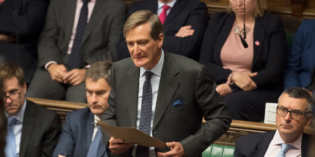
The government’s refusal to release the Intelligence and Security Committee’s report into Russian activities against the UK is part of a worrying pattern of obstruction and delay
Parliament’s Intelligence and Security Committee has produced a report into Russian interference in UK politics, but it cannot be published without government approval. Andrew Defty explains that Number 10’s failure to release the report before Parliament was dissolved is the latest in a series of government actions that have hindered effective parliamentary scrutiny of the intelligence and security services. Reform to ensure the committee has greater independence from executive obstruction should be considered in the next Parliament.
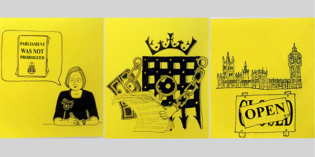
The rule of law, not the rule of politics
Joelle Grogan comments on the UK Supreme Court’s Cherry/Miller No 2 judgment on the government’s attempt to prorogue Parliament. She argues that criticisms of the court as ‘too political’ are misguided, and its ruling defended the rule of law, and upheld the principle that Parliament is at the core of the British constitution.

Press freedom is necessary to advance environmental protections across the globe
Journalists face increasing threats and obstacles to investigating environmental conditions internationally. In new research, Jeff Ollerton, Matt Walsh and Ted Sullivan find that press freedom goes hand in hand with a higher level of environmental protection. Therefore, for countries to address the climate crisis, they need an open, well-resourced media.
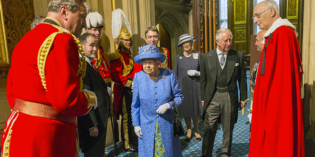
The modern monarchy and prorogation: clearer rules are required
The question of the legality of Boris Johnson’s prorogation of Parliament reaches the Supreme Court this week. In this context, Craig Prescott argues that, if politicians can’t exercise restraint, then clearer rules for when one parliamentary session ends and a new one begins are needed to avoid the politicisation of the modern monarchy.
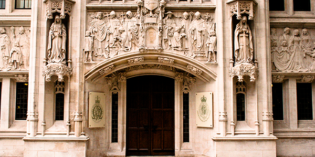
Can politicians act with impunity? The constitutional principles at stake in the prorogation case
In considering whether the recent decision to prorogue Parliament was legal, the English and Scottish courts came to different conclusions because they considered different questions, explains Pippa Catterall, not because Scottish and English public legal approaches differ. She discusses the points of constitutional law that are at stake as the Supreme Court prepares to hear the case.
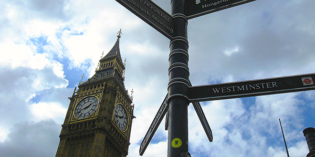
Brexit shows both the importance of the British Political Tradition and the extent to which it is under threat
Matt Hall and David Marsh discuss what recent developments in British politics, especially since the election of Boris Johnson, tell us about the British Political Tradition – a view of democracy that emphasises a limited liberal conception of representation, which focuses on the importance of free and fair elections, and a conservative conception of responsibility based on the idea that the ‘executive knows best’.

Theresa May and Boris Johnson: secrecy as statecraft?
During UK–EU Brexit negotiations, Theresa May pursued a determined path of concealment and non-disclosure. Envisaged as a way to protect herself against political opposition, enhancing her bargaining power vis-à-vis the EU and deliver policy promises, the strategy failed and contributed to the end of her premiership. Ben Worthy and Marlen Heide detail how her case illustrates the powers of increasing transparency expectations and the risks of concealment over longer times or around contentious issues. It provides a useful lesson for her successor.
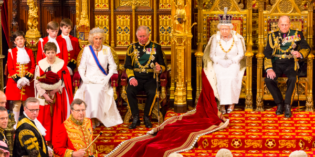
Threat of prorogation: what can the Commons do?
The Prime Minister has requested and received consent for the current parliament to be prorogued, and plans to introduce a new Queen’s Speech before the Brexit deadline of 31 October. David Howarth assesses the options available for those wishing to oppose this and enable the Commons to prevent a no deal Brexit.
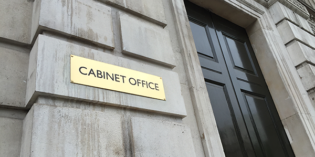
Governing as a permanent form of campaigning: why the civil service is in mortal danger
Patrick Diamond writes that the process of governing is being transformed into a highly politicised form of campaigning, with polling and short-term politics being more important to Ministers than long-term policy. This puts the capacity of the state to steer a sensible course through the perilous post-Brexit landscape in serious doubt.
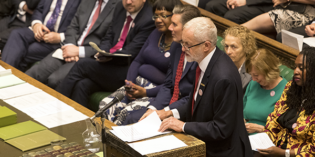
Who is the Leader of the Opposition?
David Howarth explains the legislation and parliamentary rules that determine who is recognised as the official Leader of the Opposition in Parliament. The political implications of these procedures are significant, given current discussions about who would form a government if the current one were to lose a vote of no confidence.


 Democratic Audit's core funding is provided by the Joseph Rowntree Charitable Trust. Additional funding is provided by the London School of Economics.
Democratic Audit's core funding is provided by the Joseph Rowntree Charitable Trust. Additional funding is provided by the London School of Economics.